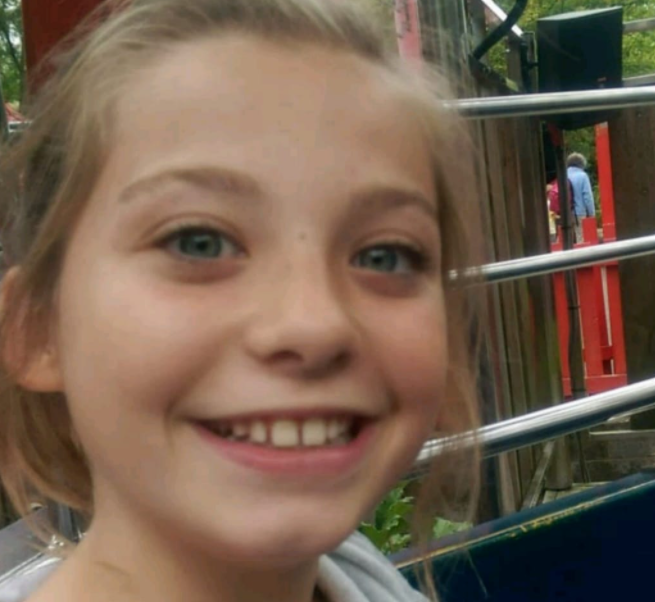Coroner Karen Henderson recorded a narrative verdict at the conclusion of the inquest into the death of a 17-year-old girl who was found dead in a flat in Hove.
Dr Henderson made her remarks yesterday (Friday 18 March), having resumed the inquest on Tuesday (15 March) into the death of Sophie Read.
Sophie died less than two months after turning 17. She was staying in a supported living hostel, in Hollingdean Terrace, Brighton, run by a provider called OwnLife while in the care of West Sussex County Council.
The coroner was speaking at Brighton and Hove Coroner’s Court, sitting at the Sussex County Cricket Ground, in Hove.
She said: “It is clear that while she was much loved, she also suffered great trauma throughout her too short life including the death of her father when she was 12 years of age.
“Indeed, given the extent of the difficulties she faced, it is clear that it was more than any child of this young age would ordinarily have experienced.
“It is all the more remarkable as to how spirited she was and how loyal, witty and hard-working she remained.
“She was described as a ray of sunshine and I do not think there is a more apt description.
“I have no doubt her death is a great loss not only to her mother and grandfather but for her friends and indeed for all those who cared for her during her life.
“The impact of these traumatic events in her life left Sophie extremely vulnerable with complex needs and influenced how she saw the world and more pertinently how it directly affected her behaviour.
“At times, (it) could be challenging, with a history of drinking alcohol, sometimes to excess, experimenting with drugs and other risk-taking activities including not returning home and not abiding by curfews set for her own protection.
“And given her young age and experiences she perhaps did not always have insight to the consequences of those risks.
“Sophie had a number of setbacks towards the end of 2019 and into 2020. These included the loss of her nursery placement … on or around the anniversary of her father’s death.
“Sophie was provided with accommodation at OwnLife and arrived there on (Monday) 27 January 2020 on a three-month assessment.
“A safety plan was put in place and a curfew of 11pm was agreed and Sophie understood and agreed to this safety plan.
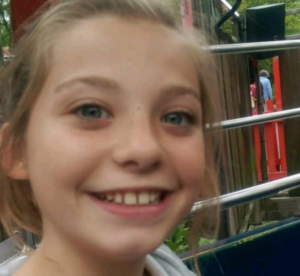
“Sophie settled down well in her new home but breached curfew seven to eight times and on occasions did not return until the following day and resulted in being reported as a missing person.
“She saw a close friend on (Saturday) 22 February in Worthing and all seemed well. She told her friend that she was in a relationship with a man who was known as Rex, but his name was Reis Forde, and that they had been in a relationship since January.
“She also mentioned this relationship to Miss (Mel) Vigar, who was supporting her through Barnardo’s.
“Given the nature of the conversation with her friend, and her own confusion as to how she felt she was being treated, it is unlikely that this was truly reciprocated.
“On (Monday) 24 February 2020 … she bought a train ticket to Hove station and … arrived at a flat in St Aubyns to meet up with Mr Forde who had rented the Airbnb apartment for two days.
“There has been contradictory evidence heard in relation to the events … that took place on that fateful and tragic night.
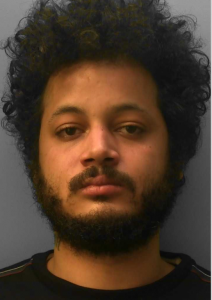
“There is a photograph, found on Sophie’s phone, that places Sophie and Mr Forde in the apartment at or around 10.30pm … sitting together on a distinctive mustard-coloured sofa in the living room.
“There is evidence … that she was happy and the photo also seemed to indicate that was the case although I do not dispute she may have had concern over (an imminent) court appearance.
“Or alcohol may have made an impact on her state of mind during her time at the rental property and the events between Mr Forde and Sophie which remain unknown and unknowable.
“Sophie had been drinking and … alcohol in the form of vodka was present in the apartment.
“I heard evidence that Ms (Sinead) Doyle was present in the rental apartment while Sophie was there.
“I do not accept that to be the case (because) of the evidence from phone data and cell site analysis and in relation to the taxi ride that Ms Doyle took after she was contacted by Mr Forde at or around 7.30am on (Tuesday) 25 February 2020.
“Ms Doyle spent the night in her own accommodation in Worthing and she was asked to attend the Airbnb rental at the request of Mr Forde as he had recognised Sophie had sadly died before he made the phone call to Ms Doyle.
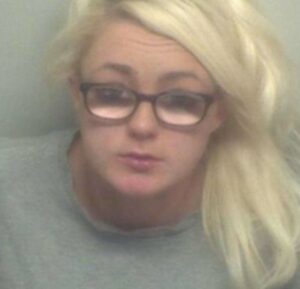
“I am therefore satisfied Sophie spent the night alone with Mr Forde at the rental property. It is not possible to rely on the evidence of Ms Doyle, either directly or through hearsay, until she attended at or around 8.36am (on Tuesday 25 February).
“Sophie sent a text at 12.40am asking a very close friend to call her – and she did at or around 12.38am on (Tuesday) 25 February – and as was common practice between then, they were chatting to each other on the phone for a considerable period of time. Until nearly 2am.
“During that phone call, her friend said Sophie was drunk and that she had taken heroin belonging to Mr Forde. Then the conversation ended as her friend thought that she had gone to sleep.
“I accept the toxicology results which indicate that Sophie had taken heroin and cocaine while intoxicated with alcohol.
“The toxicologist has commented that the heroin was at a fatal toxic level and the level of cocaine toxicity is high in comparison to normal recreational drug levels and within the range associated with severe and acute fatal toxicity.
“While Sophie experimented with drugs and knew individuals with drug dependency issues, and indeed attended (a hospital emergency department) in 2019 for a likely adverse reaction to a drug, likely MDMA, there is no evidence that Sophie used class A drugs such as heroin or cocaine.
“Furthermore, there was no evidence of drug paraphernalia in her accommodation at OwnLife or at her home and I accept the evidence that she simply did not have the financial wherewithal to obtain such drugs.
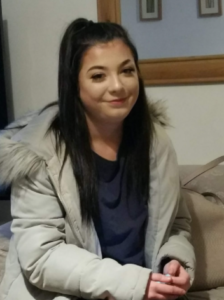
“In this regard she was naïve to drugs and in the absence of any tolerance developed with chronic use, whatever drugs that were taken are likely to have had a significantly greater impact.
“I am satisfied that it is more likely than not that Sophie had access to these drugs at the rental apartment.
“It is in the public domain that Mr Forde has been convicted of drug-related issues, including the supply of drugs, and while there was no evidence in the rental apartment of drugs or drug paraphernalia after Mr Forde had absented himself from the rental property, or when Sophie was found deceased, I am satisfied that it is more likely than not that Mr Forde was the source of the drugs that were found from Sophie’s toxicology results and they directly caused her death.
“What is slightly less clear is how did these drugs find themselves in Sophie? Did she take them, as the statement from her friend suggests with regard to heroin, or was she given them?
“There is no evidence they shared drugs, given Mr Forde tested negative for heroin and cocaine but was only positive for cannabinoids for which Sophie tested negative.
“I am satisfied that he did not expect to find Sophie dead on the morning of (Tuesday) 25 February 2020.

“While it is very finely balanced, I am satisfied that it is sadly and tragically more likely than not that Sophie took heroin and cocaine while under the influence of alcohol as a naïve user with no or limited understanding of how much to take as evidenced by the significantly raised drug levels found in Sophie.
“I heard evidence that Sophie wanted to end her life and be with her father when she was drunk. Indeed, a number of her friends said this, but that was not followed up with a suicidal act, although she did self-harm.
“No one caring for her or who knew her felt that she had a history of wanting to end her life. She did not leave a note and she was forward planning, enjoying her placement at OwnLife and actively looking for work.
“While she indicated, when intoxicated with alcohol, a wish to join her father, I am satisfied that, in the early hours of (Tuesday) 25 February, Sophie’s death was not due to a genuine wish to end her life.
…
“I appreciate it is a rhetorical question but why would anyone think it is appropriate to carry drugs? It is utterly abhorrent. And the damage such drugs – particularly class A drugs such as heroin and cocaine – do to those addicted is incalculable.
“But for the presence of such drugs at the rental apartment Sophie would not have died when she did.
“She had access to them and sadly died because of that access irrespective or not whether it was her wish to try them.
“She had a history of drug experimentation and I am satisfied this was another example of this, while her mind and her decision-making were clouded with alcohol.
“And it is utterly heart-breaking that Sophie died in this way when there was such hope by those caring for her that she would be able to overcome the challenges that she faced in her life.
“But I do accept that she attended the accommodation freely and, in so doing, she misled both her grandfather and OwnLife as she had done not infrequently in the past.
…
“It is more likely than not that at or around 7.30am when she was first recognised by Mr Forde to be dead, Sophie was already beyond help.
“Mr Forde did not undertake any meaningful CPR and did not phone 999 as he should have done.
“It is regrettable that Mr Forde did not take the opportunity to call 999, resulting in a time delay from Sophie being found at 7.30am to a 999 call made by Ms Doyle at 8.36am and the paramedics’ attendance at 8.44am.
“I am satisfied that there was no lost opportunity to have prevented Sophie’s death from 7.30am onwards and likely before that time when she was first seen by Mr Forde.
“The time of death … is more likely than not to be nearer when her friend was talking to her at or around 2am but as to what time between 2am and 7.30am is unclear.
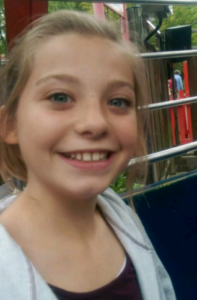
“This inquest has fully explored what steps were taken and could have been taken to keep Sophie safe in all aspects of her life.
“She was not suitable for a DoL (deprivation of liberty) order and the only hope would be for Sophie to be encouraged and directed to make good choices which she often did but could not always sustain.
“It is not possible to force anyone, not least a teenager, to do what you wanted – what indeed was ‘for the best’.
“Mr Reeve (Sophie’s grandfather), at or around 12.15am on (Tuesday) 25 February, contacted OwnLife to say that Sophie was not at home and was staying with a friend.
“OwnLife accepted this information and did nothing about it for reasons that are unclear.
“This was a significant lapse of care and did not adhere to the safety plan that was in place for Sophie.
“Attempts should have been made to contact Sophie and further exploration was needed as to who she was staying with and where – and a missing person’s report should have been filed as a matter of course.
…
“The question for this court is whether this lapse made a more than minimal contribution to Sophie’s death?
“After careful thought and consideration, I do not see that it did. In no other time when she breached a curfew (which was not uncommon) has Sophie been found before she has reappeared.
“She has previously given the wrong address. She cannot be traced unless she wishes it to be so. The carers, just like her grandfather could not always protect her from herself.
“Sophie had the capacity to decide what she wanted to do and sadly she made an unwise choice which sadly led to her death.
“This court has also explored if there were any omissions in care given prior to Sophie’s death and I am satisfied that there were not.
“Ms (Mel) Vigar, Ms (Bridie) Garnham and Ms (Clare) Harvey … all individually and collectively provided care for Sophie in an exemplary way.
“Sophie was supported magnificently and in return she gave those caring for her much in return.

“I accept the cause of death provided by the pathologist as multi-drug toxicity – heroin, cocaine and alcohol.
“Sophie Zola Read suffered considerable life trauma and was a vulnerable young adult with complex needs who was a looked after child in the care of the local authority.
“She was recorded to have died at 9.05am on (Tuesday) 25 February 2020 at a rental flat, Flat 2, 22 St Aubyns, Hove, having last been known to be alive at or around 2am, earlier that morning.
“Toxicology (tests) confirmed that Ms Read had died from heroin and cocaine toxicity on a background of alcohol intoxication.
“It is likely the alcohol and drugs were taken while on the premises.”

